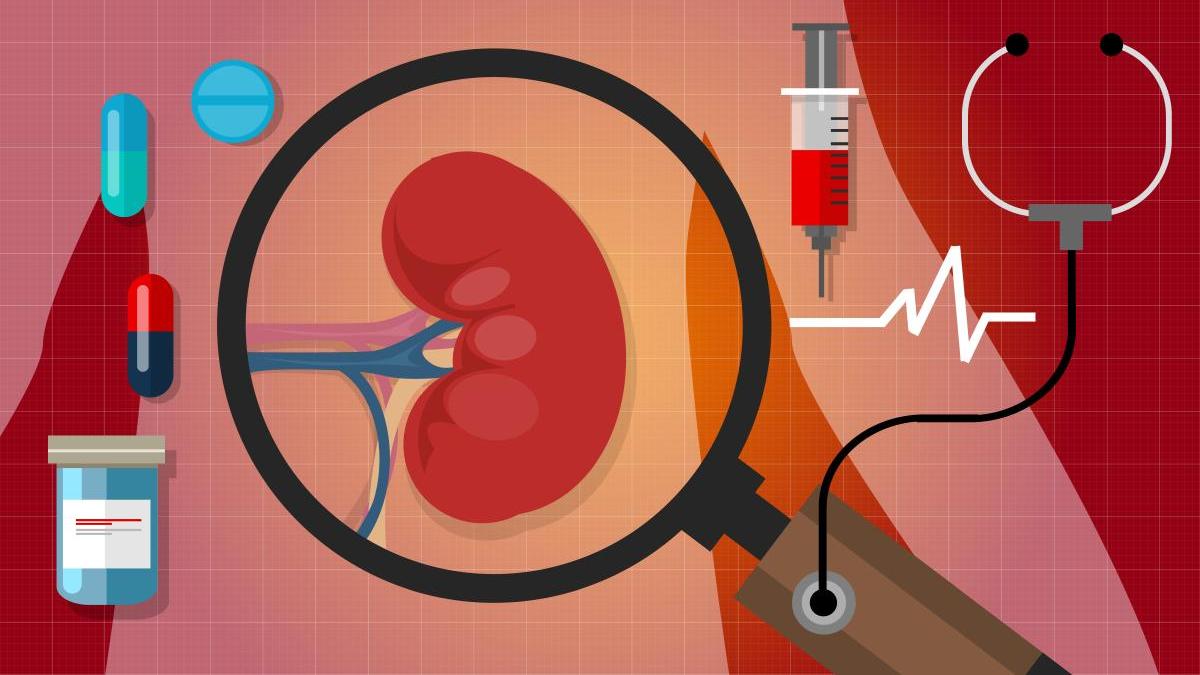About one in five people with diabetes will also have diabetic nephropathy at some point in their life. It is kidney damage caused by diabetes, which develops over many years and is also referred to as kidney disease. If diagnosed early enough, diabetic nephropathy can be slowed down with treatment. There are also ways to reduce the risk of developing this complication.
Causes
Kidneys are organs that filter your blood to get rid of extra fluid and waste products from your body. High blood pressure and elevated sugar levels can damage small blood vessels and filters in the kidneys. If kidneys are not working well, abnormal amounts of protein from the blood may leave your body in the urine. It is usually an early sign of kidney disease.
Symptoms
At the early stages of kidney disease, there might be no visible symptoms. Therefore, it is essential to be tested for kidney disease every year so that it can be spotted early. If kidney disease progresses, you can experience symptoms like:
- blood in the urine
- swollen ankles, feet, and hands
- tiredness
- shortness of breath
- feeling sick.
These symptoms may develop because kidneys are struggling to remove extra fluid and wastes from your body. However, such symptoms can also happen because of other conditions, so it is important to see a doctor and figure out the real cause of the problem.
Profilactics
To reduce the risks of developing kidney disease, you should control your blood pressure and blood sugar levels. A healthy diet and active lifestyle are also effective in improving your health. In addition, it is recommended to quit smoking if you have this habit. And, of course, you should go to all your medical appointments and have regular check-ups.
Testing
A urine test called the albumin creatinine ratio is done for determining signs of protein leakage. It is usually an early sign of kidney disease. There is also a blood test that looks for a waste product called creatinine. It is done to estimate your glomerular filtration rate, which is a measure of how well your kidneys are working. Both tests should be done every year.
Treatment
The type of treatment required depends on the stage of kidney disease. First of all, it is necessary to keep the blood pressure under control to stop kidney disease from getting worse. You may be prescribed medications that lower blood pressure and help to protect the kidneys from further damage. A doctor can also advise you to avoid certain foods. You can get support from a registered dietitian to make changes to your diet.
In late-stage kidney disease, treatment options include dialysis or a kidney transplant. The good thing is that treatments and early diagnosis continue to improve, so fewer people develop late-stage kidney disease.
More details:
Prediabetes and measures of prophylaxis
Differences between type 1 and type 2 diabetes
Causes, mechanisms of the disease development and symptoms (Diabetes mellitus type 1)
Causes, mechanisms of the disease development and symptoms (Diabetes mellitus type 2)
















Leave a Reply
You must be logged in to post a comment.